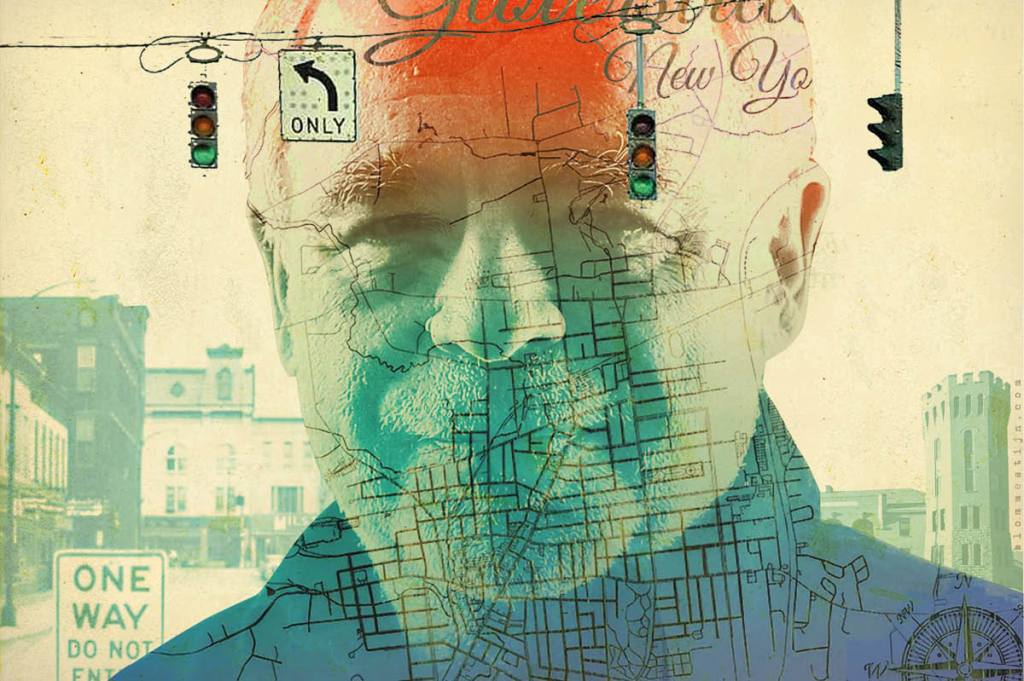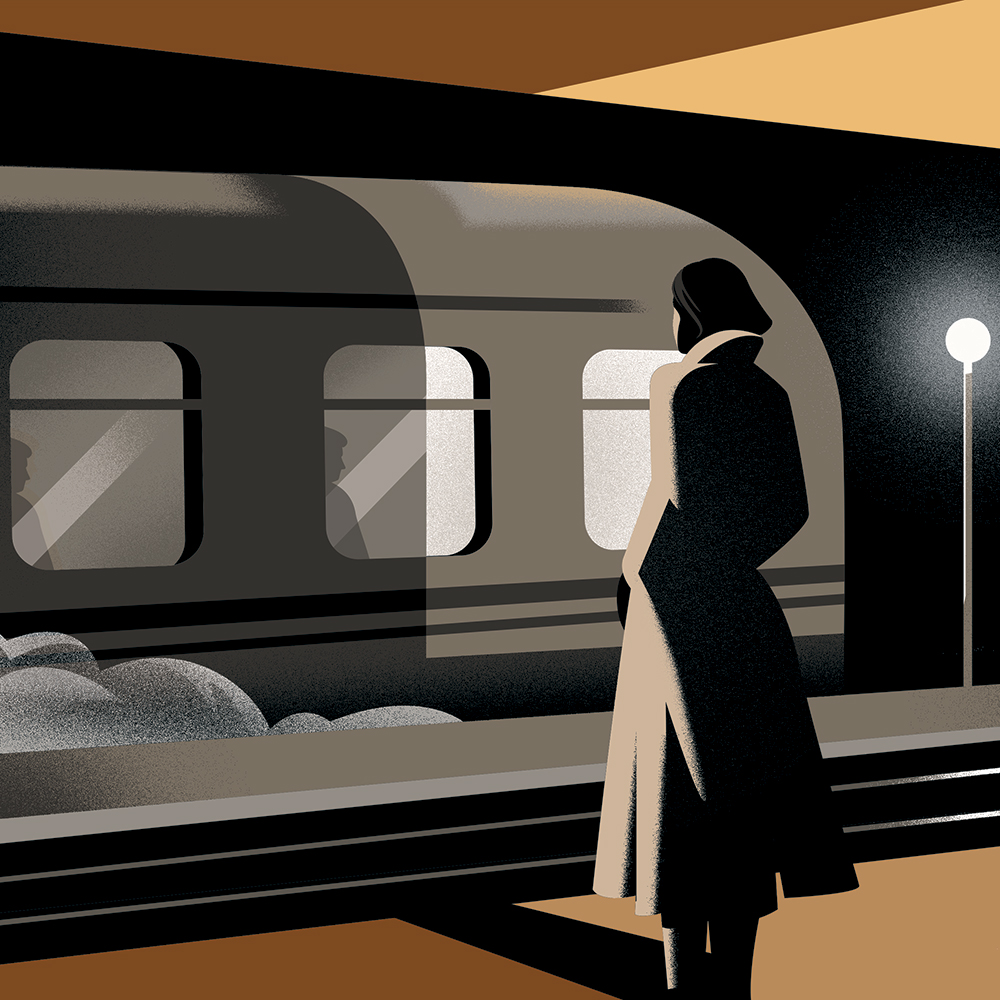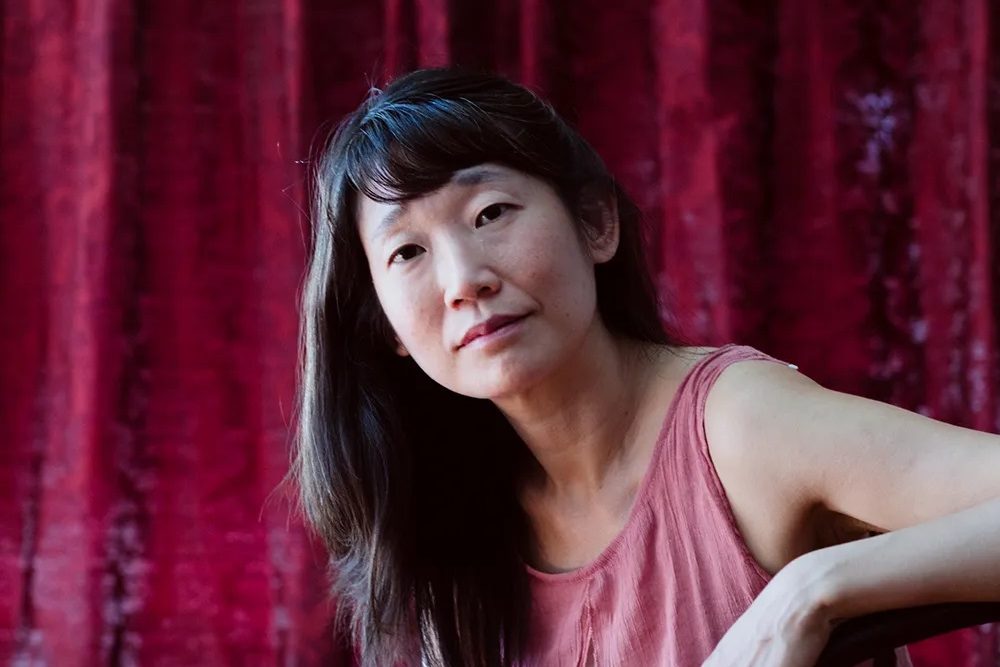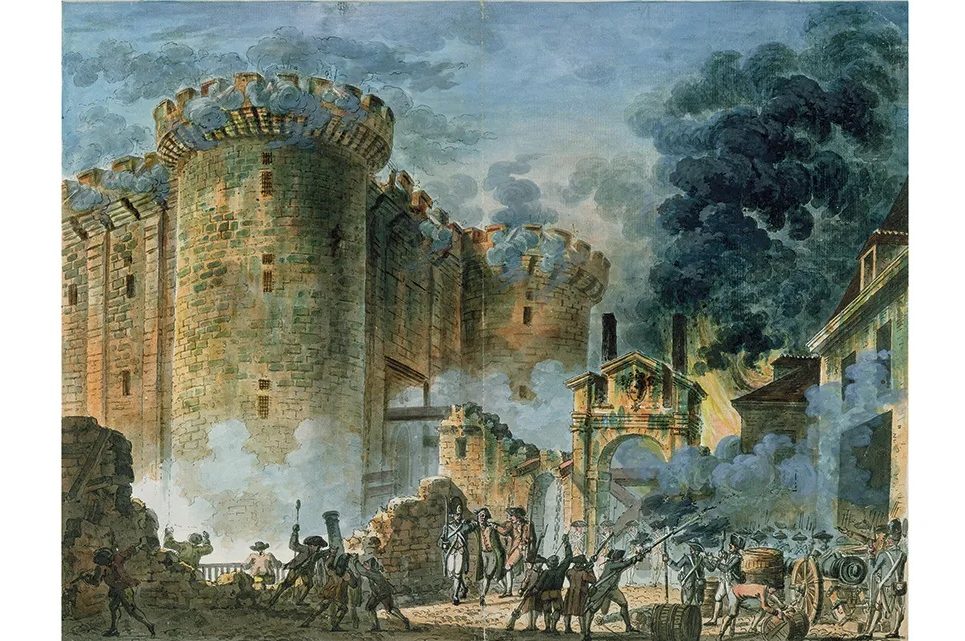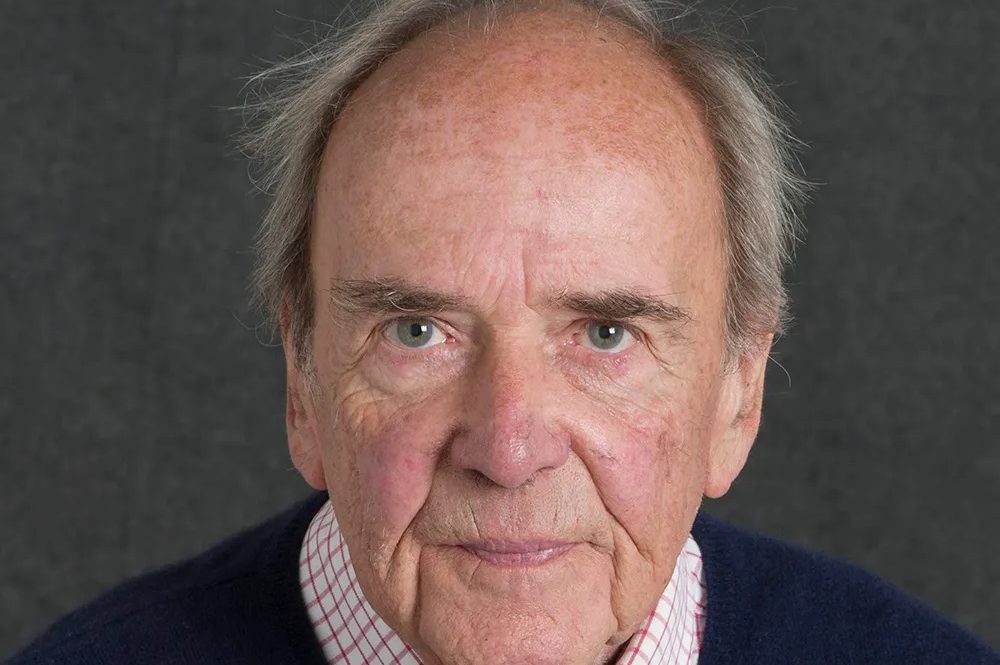In Elsewhere, a coruscating memoir published in 2012, Richard Russo described his formative years as “an American childhood, as lived in the late Fifties, by a lower-middle class that barely seems to exist any more.” The setting for this slice of lost Eisenhower-era Americana was Gloversville in upstate New York, an East Coast leather town where the money had long since moved out and taken the locale’s animating spirit with it, to the point where the eighteen-year-old high-school graduate reckoned that “you could have strafed Main Street with an automatic weapon without endangering a soul.”
The “Main Street” reference carries its own freight of associative cargo. It would be difficult to come away from Russo’s (fairly) compendious oeuvre — over a dozen fat works of fiction now, going back to Mohawk (1986) — without acknowledging the faint, or not so faint, influence of Sinclair Lewis. Similarly, it takes only the merest sniff at one of his more substantial achievements — Empire Falls, say, which scooped a Pulitzer in 2002 — to confirm that Gloversville, where economic woes march side by side with domestic trauma, hangs over his work like a shroud. I came late to life on Planet Russo, which is not quite the dereliction of critical duty that it sounds. Russo has practically no reputation in the UK, where I live and where his books, while respectfully received, get passed from publisher to publisher and you could go prospecting through the “R” section of the British bookstore from Rooney to Rushdie without finding any proof that he even existed. All this is mystifying to the literature-fancier, and yet perfectly explicable to the connoisseur of the UK book trade, which however keen it may be on American fiction tends to prefer prairie chic and Manhattan glamour to downbeat site-specificity.
Bridge of Sighs (2007), my first saunter around the flyblown streets of Russoville, had all the latter quality in spades. Its 500 or so pages — Russo rarely does things by halves — offered a tantalizing vista of faded, postindustrial, small-town America, full of monumental passions and seething anxiety, where the dead hand of the past makes its presence felt in all kinds of unsettling ways. Chief among its considerable merits was Russo’s ability to pull off a trick that scarcely any novelist seems to be able to achieve these days, to convey a sense of the limits within which the average life is lived. The ordinariness of his characters — the end-of-tether bar-proppers, the tool-toting handymen and the elderly ladies hunkered down in their crumbling houses — is deceptive. In the end, their persistence, idiosyncrasy, irony and sheer earnestness (a surprisingly common attribute in Russoville) give them a sheen that might not have been predicted in Russo’s low-key treatment of their milieu.
Russo’s territory may be full of exceptional people; at the same time it is a paean to anti-exceptionalism. Not that anything he writes could ever be described in such quasi-glamorous terms, for the style is as stripped down and functional as most of the lives on display. Russo doesn’t do fireworks. Dazzling metaphorical flights are not his thing. He is more of a “How’re you doing?/Not so bad/Next one’s on me/Ain’t seen your dad lately how’s he been?” kind of a guy, getting traction out of what stays unsaid rather than shouted from the rooftops. He excels, on the other hand, at the highly desirable abstract that Henry James located in the novels of the gloomy late-Victorian British novelist George Gissing: saturation, the knack of building up lives from a pile of tiny fragments of incidental detail, implication and, above all, atmosphere.
Saturation, naturally, requires a template, a way of looking, a way of reporting, a way of ensuring that things don’t get out of hand. If, from one angle, we have seen most of the cast of Somebody’s Fool before – this, after all, is the final volume of the trilogy begun by Nobody’s Fool (1993) and continued by Everybody’s Fool (2016) — from another, they could easily have stepped out of virtually any other novel to which Russo has put his name. Volume Three may be full of surprises — a decomposing suicide’s corpse turning up in a derelict hotel, a stack of unexpected plot twists — but none of it is truly surprising. We know Russo-man and Russo-woman too well by now, are familiar with how they operate, so much that their guile can sometimes come across as downright guileless.
We also know the backdrop. Here we are again, in North Bath, upstate New York (somewhere near Utica, you deduce), the world of Hattie’s Lunch, the Horse and the Green Hand, a world where what looms over the horizon is, once again, in serious danger of being crowded out by what went before. Most of Russo’s books are stealthily in thrall to the past. This one is dominated by Donald “Sully” Sullivan, the irascible yet curiously compelling focus of volumes one and two, dead these past eighteen months of the heart failure that always threatened to carry him off, but still capable of exerting a prodigious influence on the family and friends he left behind.
These include Peter, Sully’s ex-college professor yet oddly disengaged son (“You have actual feelings in there?” a woman demands as she jabs his breastbone with a carmined fingernail) and his dream of a “clean getaway,” his one-time lover Ruth, daughter Janey and granddaughter Tina, lugubrious sidekick Rub Squeers, Raymer the newly-retired (white) police chief and Charice his (black) on-and-off girlfriend who has succeeded him in the role. As ever with Russo, a formal, public backdrop, in this case the virtual municipal takeover of run-down North Bath by its more moneyed neighbor Schuyler Springs, combines with a single, galvanizing event (the discovery of the decomposing suicide) to set the plot spinning.
Russoville has long been characterized by the impact on its settled ways of unheralded revenants. This time round they include Charice’s OCD-afflicted ex-cop brother Jerome and Peter’s disaffected younger son Thomas, whose nose for trouble opens up a whole can of police-procedural worms and throws his father’s fractured marriage into sharp relief. Meanwhile, heredity, as ever, obtrudes itself, demonstrating to Peter his resemblances to the old man even as he tries to ignore them, while banter — Russo’s chief form of dialogue — comes cantering along the rails to join it.
All of which brings us back to saturation. Some of the best scenes in the novel take in Ruth’s conversations with Janey. The two women have numberless bones of contention to gnaw. To the ghost of Sully can be added Janey’s resentment of the paternal fortune bestowed upon her daughter and Ruth’s worries over Police Lieutenant Delgado, the latest unsuitable man to be toying with Janey’s affections. Compassion, consequently, is always undercut by acrimony (“You look worn out.” “I look like you used to. Rode hard and put up wet…I wish daddy were still alive so I could kill him”), mundane exchanges burrowing down into an existential bedrock (“How come some people like us can’t ever get ahead, is what I’d like to know. You worked seventy-hour weeks your whole life and what’d it get you?”).
Here, and in many another tense and nervy exchange, there is a sense of something personal raising its head above the boardwalk, the feeling that these landscapes matter to Russo because he was once part of them himself and that their accumulated funk still needs to be prized out from beneath his fingernails. The experienced Russophile will probably recall Elsewhere’s final chapter, in which the grown-up Russo, returning to Gloversville after his mother’s death to fulfill a magazine commission, decides that the fictional towns of Bridge of Sighs and his other books “are no better or worse than the real one. They’re just mine.”
All this might suggest that an eternal sepia-tint hangs over the proceedings. In fact, Russo is keenly alert to some of the generational and interracial complexities of twenty-first-century America: the scenes in which Charice and Raymer address one or two of the difficulties (which is putting it mildly) of being a black female cop in a place like North Bath practically fizz with wounded amour propre. Elsewhere, the novel bulges with all the resonant minor characters in whom Russo specializes, a highlight being sensitive Officer Miller, who throws up in the presence of the decomposing corpse but comes into his own when invited to sign a false citation. To say that it lacks surface glitter is rather like expressing surprise at the Pope being found on the balcony of St. Peter’s in a white cassock, but this is Russoville, where the pleasure lies in detail, stealth and inference and its harvest of a series of books that, you suspect, will still be read when more conventionally right-on talents are in the landfill.
This article was originally published in The Spectator’s August 2023 World edition.



